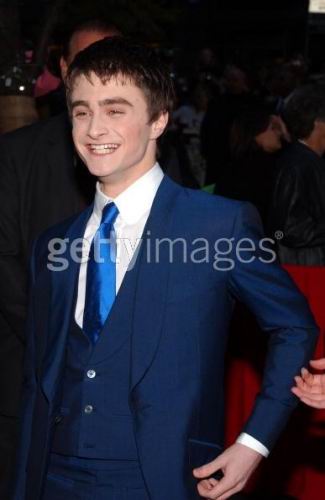|
Over a long, checkered career that has encompassed everything from such classics as
The Unforgiven to the dregs of Orca, lanky, blue-eyed Richard Harris has brought his unique, earthy charisma to every role
he has inhabited. Born in Limerick, Ireland, where he was a noted rugby player as a youth, Harris studied classical acting
at the London Academy of Music and Dramatic Art, making his stage debut in The Quare Fellow in 1957. Two years later, Harris
made his screen debut in Alive and Kicking. Starring roles followed, but Harris earned recognition with supporting parts in
such major films as The Guns of Navarone (1961) and Mutiny on the Bounty (1962). In 1963, the actor made good use of his rugby
skills as a coal miner who aspires to be an athlete in The Sporting Life. The successful drama earned him a Best Actor award
at Cannes and an Oscar nomination.
As Harris' movie career flourished, so did his stage career, especially after he replaced
Richard Burton in a theatrical revival production of Lerner and Lowe's musical version of Camelot. In 1967, Harris again played
King Arthur in the screen adaptation. At the time, he ranked alongside Sean Connery and Michael Caine as one of the more manly
men in international cinema; thus, audiences were surprised to hear him sing in such a romantic film. Harris' singing skills
proved to be less than shoddy, though: Camelot's soundtrack album turned out to be a bigger seller than the film itself. In
a similar vein, Harris further surprised his fans when he released a single of the epic (one of many words used to describe
it) "MacArthur Park," written by his friend Jimmy Webb. The song was an international smash hit and was the first long-play
single to get airplay on AM radio, sparking something of a successful recording career for the actor.
|
|
 |
|
Harris' movie career continued with his best-known (though maybe not his best) films of the '70s
including A Man Called Horse (1970), a violent Western in which he played an English aristocrat who is tortured and eventually
adopted by the Sioux. The film was a major hit and spawned two sequels. As the decade progressed, the quality of films in
which Harris appeared -- usually in supporting roles -- declined. This trend continued throughout the '80s, but in 1990, Harris
made a strong comeback when he was nominated for a Golden Globe and an Oscar for his hard-hitting performance in Jim Sheridan's
The Field. Throughout the '90s, Harris primarily played character roles in a wide variety of films, including the resident
villain of Smilla's Sense of Snow (1997) and famed lion rehabilitator George Adamson in To Walk With Lions (1999). He kicked
off the new century as the Roman emperor Marcus Aurelius in Ridley Scott's epic Gladiator, starring alongside the likes of
Russell Crowe, Derek Jacobi, Joaquin Phoenix, and David Hemmings. With his talents as an actor seeminly stronger than ever,
the aging Harris proved a formidable screen presence in the film that would be named Best Picture at the 2001 Academy Awards.
Ever in demand, Harris would follow the success of Gladiator with a role in The Pearl (2001) before becoming involved with
one of the most eagerly anticipated film franchises of all time, the Harry Potter series. Based on the books by author J.K.
Rowling, the first film in the series, Harry Potter and the Sorcerer's Stone found Harris ideally cast as the wise Headmaster
Albuis Dumbledore. Though many longtime fans of the stately actor were taken aback by Harris' appearance in the film, his
role proved a gift to his eleven-year-old granddaughter, who swore never to speak to him again if he turned the role down.
Before reprising his role in Harry Potter and the Chamber of Secrets (2002) Harris would take a turn towards more classical
literature with his role in the The Count of Monte Cristo (2002). Though that film proved only a moderate success at the box
office, the exposure Harris gained for his role in the Harry Potter films ensured a place for the renowned thespian in the
hearts of children for generations to come. Shortly before the release of Harry Potter and the Chamber of Secrets, Harris'
legions of fans were saddened by news that the the actor had succumbed to Hodgkin's disease in late October of 2002. Though
his death would bring to an end the career of one of most prolific and respected actors in film history, Harris' legacy would
no doubt live on in celluliod form for the enjoyment of generations to come.
|
 |
|
|
|
